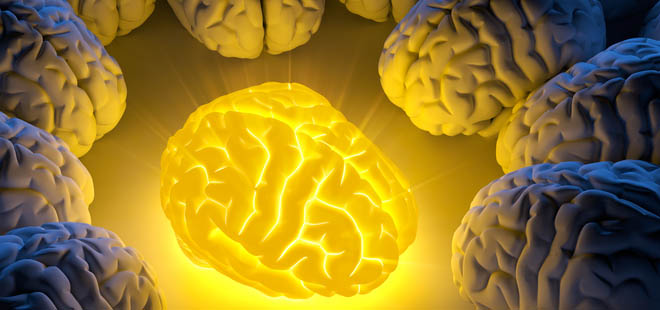Google Set to Build Quantum-Computing Hardware
Google is the unrivaled leader in all things tech-related, from mobile apps to document storage and everything in between. Based on the company’s technological acumen, it stands to reason that Google would forge the way when it comes to quantum computing.
In a bold move, Google has begun work on processors that utilize subatomic particles to increase computing speeds exponentially. While the applications of such lightning-fast processing are truly limitless, achieving a workable prototype is bound to prove challenging. Even for a company like Google, with its untold available resources, there are numerous issues involved in developing such a complex computing system.
What Is Quantum Computing?
To truly understand the challenges of creating a quantum computer, one must first fully comprehend this complex concept. The ability to perform ultra-fast processing lies in the use of quantum bits, or qubits, thereby allowing simultaneous calculations to occur. This is in stark contrast to conventional computing, which utilizes the binary system to perform tasks.
As most are aware, the binary system is represented in ones and zeroes. As a result, conventional computers can only occupy one of these two states at a time. Qubits offer more versatile computing, stemming from the ability to hold multiple states at any given time. For truly complex computations, including things like parsing military intelligence and data encryption, quantum computing can perform tasks at a much quicker pace than a typical computing system ever could. Computation that could take years to complete may take as little as a few days when using high-speed computing methods.
Applications of Quantum Computing
Conventional computing systems are an important part of daily life for most of the world. Very few workplaces are without a dependable computer network, and mobile devices provide instantaneous communication for people around the globe.
RELATED: Bring Your Own Device (BYOD): #6 BYOD Project Management
While speed can be a concern in some respects, the average consumer is most likely pleased by a traditional computer’s abilities. It’s only when dealing with complicated calculations that conventional computing’s shortcomings become evident. This is especially true for government entities and research facilities, which often deal in sizable amounts of data. Such immense projects are far outside the range of ability for existing computer systems.
Accordingly, the advent of a reliable quantum computing system will be useful to a variety of industries and interests. Such projected applications can include:
- Predictive Analysis
- Code-Breaking/Cryptography
- Integer Factorization
- Situational Modeling
- Physics Calculations
- Optimization Problems
- Medical/Pharmaceutical Research
- Artificial Intelligence
In the above cases, conventional systems have proven woefully inadequate at solving some of life’s toughest problems. A working quantum computer can help answer questions involving complex calculations, including important queries about the universe, earth, and even the human body itself.
Developers Face Many Obstacles
One of the most significant obstacles facing developers is the inherent instability of qubits. In this respect, the thing that allows super-fast systems to make limitless calculations at once may also prove to be their downfall. Changes in environment, such as magnetism and temperature, can significantly alter the state of operating qubits. This unreliable nature must be rectified before such systems go into widespread use.
Another obstacle is the standard length of quantum states. With most computing systems, information must be accessible for longer periods of time than typically afforded by qubits. Keeping the subatomic particles used in such calculations functioning has proven to be particularly challenging, though researchers have experienced recent success by way of dynamical decoupling. Also known as DD, this concept uses a precise amount of ‘interference’ to cancel out common computing errors. While this development is considered to be significant by many, further testing is required to ensure efficacy.
RELATED: Microsoft Cloud Solutions
Cost is yet another concern. From research and development to actual production, the costs for creating such a computing system are typically exorbitant. In this respect, Google is an ideal company to work on such complex issues, given the company’s storied economic success.
Google Innovation May Provide a Solution
All over the world, Google is well-known for technological innovation. This was certainly the case with the development of Calico, a Google subsidiary aimed at extending the human lifespan by decreasing the ravages of aging. To many, this project recalled well-traveled science fiction principles vastly similar to those found in the concept of super-speed computing systems.
Google is bringing this same level of innovation to the field of optimized computing. With the help of physics professor John Martinis, Google is in the research phase of developing such systems. Using the blueprint devised D-Wave, a Canadian tech company already claiming to have built an operational quantum computer, Google is beginning work on what is known as a quantum annealing computer.
Gate-Model vs. Quantum Annealing
Google is not alone in its quest for a reliable quantum computing system. Many labs are hard at work on optimizing the process using the gate-model approach. Such machines eschew the use of qubits, instead tweaking conventional systems to allow faster performance.
RELATED: Top 5 Cloud Storage Service Providers
Due to the complex nature of the quantum method of computing, those working on the gate-model have expressed a fair amount of skepticism at companies like D-Wave, which has opted for high-powered qubit computing to solve the problem of achieving optimum performance. With Google’s recent announcement, it appears the company falls in line with D-Wave’s thinking.
Quantum Computing and Artificial Intelligence
One of the most exciting applications of a working quantum computer is the development of artificial intelligence. By harnessing the enormous power of these systems, so-called ‘machine learning’ endeavors could receive an unbelievable boost.
While quantum computing presents an impressive range of applications, artificial intelligence has even more to offer. Robotics is just one industry that could make use of a reliable artificial intelligence model. Other industries that can benefit greatly from AI applications include aviation, computer technology, banking and finance, healthcare, transportation, telecommunications, and even entertainment. Developing such systems may not be possible without the speed provided by qubit-based computing systems.
To the Future (and Beyond)
While it may be a long ways off, computer systems utilizing quantum components will have effects far beyond the technological realm. Such an optimized computer system could help mitigate the consequences of natural disasters, improve infrastructure all over the world, and even provide enhanced medical treatments to ailing patients.
This same level of innovation exhibited by Google is wholly evident in Hanei Marketing, a leader in web development and business to business marketing the world over. For more information on how we can help your business, please feel free to contact us today.
Top image ©GL Stock Images




